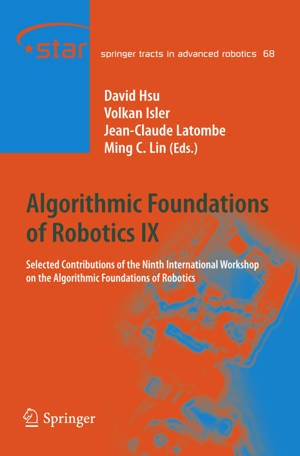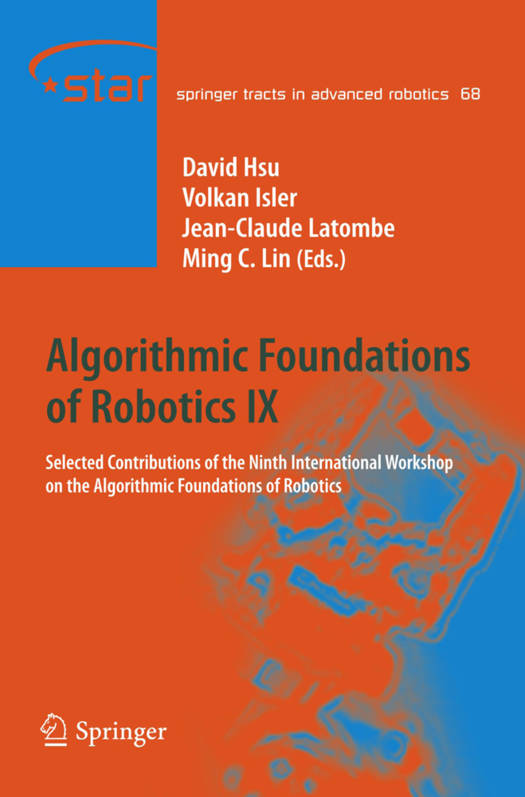
- Afhalen na 1 uur in een winkel met voorraad
- Gratis thuislevering in België vanaf € 30
- Ruim aanbod met 7 miljoen producten
- Afhalen na 1 uur in een winkel met voorraad
- Gratis thuislevering in België vanaf € 30
- Ruim aanbod met 7 miljoen producten
Zoeken
Algorithmic Foundations of Robotics IX
Selected Contributions of the Ninth International Workshop on the Algorithmic Foundations of Robotics
€ 158,45
+ 316 punten
Omschrijving
Robotics is at the cusp of dramatic transformation. Increasingly complex robots with unprecedented autonomy are finding new applications, from medical surgery, to construction, to home services. Against this background, the algorithmic foundations of robotics are becoming more crucial than ever, in order to build robots that are fast, safe, reliable, and adaptive. Algorithms enable robots to perceive, plan, control, and learn. The design and analysis of robot algorithms raise new fundamental questions that span computer science, electrical engineering, mechanical engineering, and mathematics. These algorithms are also finding applications beyond robotics, for example, in modeling molecular motion and creating digital characters for video games and architectural simulation. The Workshop on Algorithmic Foundations of Robotics (WAFR) is a highly selective meeting of leading researchers in the field of robot algorithms. Since its creation in 1994, it has published some of the field's most important and lasting contributions. This book contains the proceedings of the 9th WAFR, held on December 13-15, 2010 at the National University of Singapore. The 24 papers included in this book span a wide variety of topics from new theoretical insights to novel applications.
Specificaties
Betrokkenen
- Uitgeverij:
Inhoud
- Aantal bladzijden:
- 428
- Taal:
- Engels
- Reeks:
- Reeksnummer:
- nr. 68
Eigenschappen
- Productcode (EAN):
- 9783642423826
- Verschijningsdatum:
- 4/10/2014
- Uitvoering:
- Paperback
- Formaat:
- Trade paperback (VS)
- Afmetingen:
- 156 mm x 234 mm
- Gewicht:
- 616 g

Alleen bij Standaard Boekhandel
+ 316 punten op je klantenkaart van Standaard Boekhandel
Beoordelingen
We publiceren alleen reviews die voldoen aan de voorwaarden voor reviews. Bekijk onze voorwaarden voor reviews.










